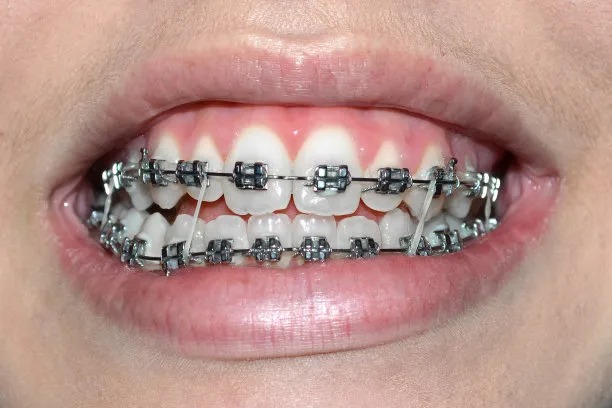Summary: Dental fillings are essential for restoring the functionality of teeth affected by decay or damage. However, before undergoing such treatments, it is crucial to consider essential safety measures and tips to ensure optimal oral health. This article explores four key areas: understanding the filling materials, choosing the right dental professional, post-treatment care, and evaluating personal health conditions. Each section provides valuable insights and practical advice aimed at enhancing the safety and effectiveness of dental filling procedures.
1. Understanding Filling Materials for Safety

Choosing the right filling material is paramount for the safety and longevity of your dental treatment. Various materials are available, including amalgam, composite resin, glass ionomer, and porcelain. Each has unique properties and potential risks. For example, amalgam fillings are durable and resistant to wear but contain mercury, which raises safety concerns among some patients.
Composite resins offer a more aesthetic option as they can be color-matched to your natural teeth. However, they may not be suitable for large cavities due to their lower strength compared to amalgam. Understanding the differences can help you make an informed decision that best suits your health needs.
Additionally, consulting with your dentist about the pros and cons of each material is essential. A knowledgeable dentist will provide insights into the materials that are not only safe but also effective based on your specific dental condition.
2. Choosing the Right Dental Professional
Finding a competent and accredited dental professional is critical to ensuring your safety during the filling process. Start by verifying their credentials, including their education, licensing, and specialization in restorative dentistry. Look for dentists who have a wealth of experience in performing dental fillings.
Patient reviews and recommendations can provide valuable insights into a dentists quality of work and patient care. Inquire about their specific experience with the type of filling you need and ask for before-and-after photos of previous work.
A good dentist should also conduct a thorough examination of your oral health before any filling treatments. They should take the time to explain the procedure, discuss any potential risks, and educate you on what to expect post-treatment. This level of care builds trust and ensures that you feel comfortable and safe throughout the process.
3. Post-Treatment Care Tips for Recovery
The journey to optimal oral health doesn’t end once the filling is done; rather, it extends into the post-treatment care. One of the first tips is to avoid eating hard and sticky foods for at least 24 hours after the procedure. Doing so will help prevent dislodging the filling or causing unnecessary discomfort to the treated area.
Its also advisable to maintain a good oral hygiene regimen following your appointment. Brushing twice a day and flossing daily will not only preserve the newly placed filling but also enhance overall dental health. Your dentist may recommend specific dental products that are safe for recovered fillings.
Listen to your body. If you experience persistent discomfort or unusual symptoms following the filling, don’t hesitate to contact your dentist. Timely communication about any concerns can prevent potential complications and ensure the overall success of the treatment.
4. Evaluating Personal Health Conditions
Your individual health conditions can significantly influence the safety and effectiveness of dental filling treatments. Be transparent with your dentist about any medical issues, such as allergies, cardiovascular problems, or autoimmune diseases. Such conditions may impact the type of materials used or the anesthesia administered.
For instance, individuals with latex allergies should alert their dentist to avoid any latex-based materials during the procedure. Similarly, if you are pregnant, your dentist may recommend postponing certain treatments until after delivery, depending on the situation.
Furthermore, discussing your medication with your dentist is crucial, as some medications can affect healing times or interact with dental materials. A comprehensive review of your health will enable your dentist to formulate a safe and effective treatment plan tailored to your needs.
Summary:
In conclusion, undergoing dental filling treatments requires careful consideration of various factors to ensure optimal oral health. Understanding the different filling materials, choosing the right dental professional, adhering to effective post-treatment care, and evaluating your personal health conditions are all integral steps in the process. By taking these measures, you can enhance the safety and success of your dental procedures.
This article is compiled by Vickong Dental and the content is for reference only.
Vickong Dental
Vickong Dental is a large medical group established in Hong Kong in 2008 by professors from well-known medical universities in Guangdong and Hong Kong, as well as medical doctors from key national '985' universities (including Master's supervisors and senior professors). The chain of branches brings together expert dentists with PhDs and Master's degrees from Hong Kong and Mainland China, committed to providing high-quality dental treatment.
"Vickong Dental Practices the University Motto of 'Healing and Serving Society,' with a Stable Operation for Sixteen Years. It Has Been honored with Hong Kong Enterprise Leaders's Choice,' and is a Global Trusted Implant Center for the Nobel Implant System. Recommended by Hong Kong Metro Broadcast and Guangdong Television, it Serves Customers from Over Thirty Countries and Regions, Gaining the Trust and Favor of Citizens from the Guangdong-Hong Kong-Macau Greater Bay Area and Surrounding Cities.

Thousands of customers' unanimous praise
The most recognized and highly recommended dental service by customers in the Guangdong-Hong Kong-Macau Greater Bay Area
We Ensure You Receive Detailed Care and Attention Here
Hong Kong standards, Shenzhen prices, Your Trusted English-speaking dentists

Vickong Dental Medical-Grade Instrument Disinfection Process
Vickong Dental Medical-Grade Instrument Disinfection Process

Vickong Dental Chain: A Warm and Comfortable Environment for Treatment






Appointment Hours

Q&A
Why choose Vickong Dental?
Vickong Dental practices the university motto 「Medicine to Benefit Society」, with each branch bringing together highly qualified dentists with doctoral and master’s degrees from Hong Kong and the Mainland, and has maintained seventeen years of steady operation。Recipient of 「2024 Hong Kong Enterprise Leaders Brand」, 「2025 Hong Kong Enterprise Leaders Brand」, a Nobel Biocare Global Trusted Implant Center, and a brand recommended by Metro Radio Hong Kong and Guangdong TV。
To date, we have served customers from more than thirty countries and regions,earning exceptionally high word-of-mouth recognition and trusted recommendations from residents across the Guangdong-Hong Kong-Macao Greater Bay Area and surrounding cities
We have eight major branches in Zhuhai、Shenzhen,and a consultation and service assurance center in Hong Kong,so you can book a free consultation at any time for any questions,which is very reassuring.
If I do not accept the quotation after the CT scan, will I be charged??
No! As long as the actual treatment has not started, you will not be charged any fees.
Will there be any additional charges during the treatment process?
No, there won’t be any additional charges. Before treatment begins, we will clearly explain the treatment plan and its corresponding fees. Only after the patient agrees and signs the consent form will we proceed with the dental service.
Can I pay in Hong Kong dollars?
Yes. Vickong Dental accepts payment in Hong Kong dollars. The amount will be converted based on the exchange rate of the day, and the applicable rate will be clearly communicated to you in advance.
Can I reschedule my appointment at any time?
Yes. Please contact us via **WeChat** or **WhatsApp** as early as possible, providing your original appointment time and details, along with your preferred new date and time slot for rescheduling.













